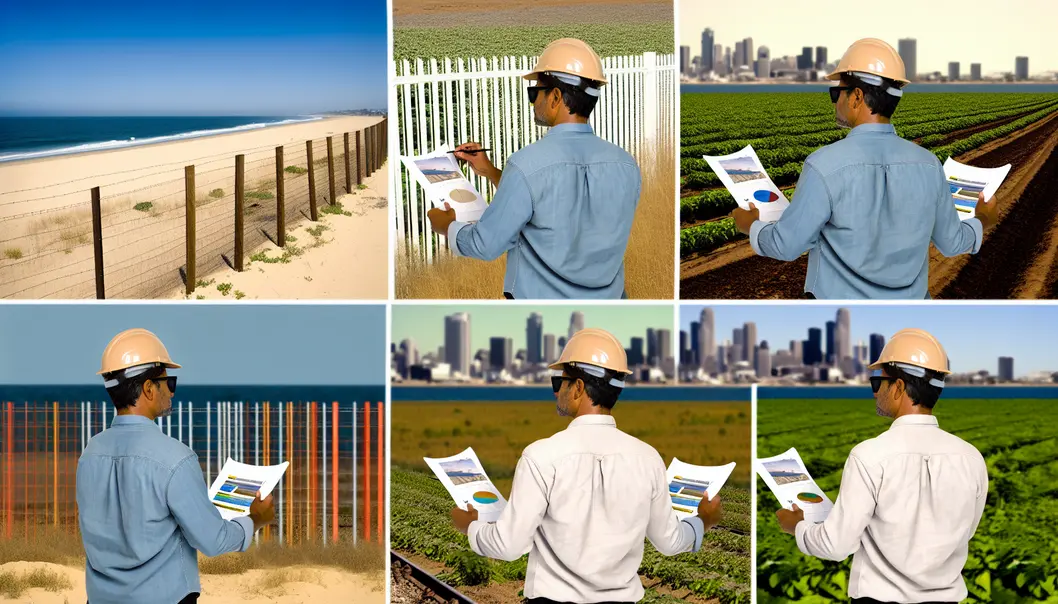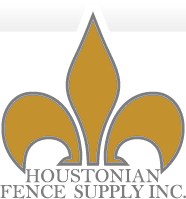Choosing the right fence materials is critical for durability, aesthetics, and cost-effectiveness in any fencing project. Fence contractors must evaluate various factors, including material properties, environmental conditions, and project requirements, to select optimal fence supplies. Making informed decisions ensures long-lasting results and client satisfaction. This article provides a comprehensive overview to assist fence contractors in navigating the complexities of fence material selection, emphasizing the importance of high-quality fence supplies tailored to specific project needs.
Evaluating Fence Materials: Properties and Performance

When selecting the appropriate fencing materials for a project, understanding the intrinsic properties and performance characteristics of each option is essential. In a well-organized workshop or supply yard bathed in natural daylight, a fence contractor carefully examines samples laid out before him. Each sample represents a different fencing material—wood, vinyl, aluminum, chain-link, and composite—alongside detailed technical data sheets that highlight their core properties.
Wood fencing, long favored for its natural aesthetic, varies greatly in durability depending on the type of wood and treatment used. Treated woods resist rot and insect damage better but typically require periodic sealing or staining to maintain their appearance. Vinyl fencing offers a low-maintenance alternative; it is lightweight, resistant to moisture, and available in various styles. However, it can be susceptible to cracking under extreme temperature fluctuations and may be more costly upfront.
Aluminum fencing presents a corrosion-resistant choice that blends durability with aesthetic appeal. Its oxidation-resistant properties make it suitable for coastal environments where salt spray is prevalent. Chain-link fencing, noted for its affordability and strength, provides excellent durability but offers limited privacy. Its metal wire construction makes it highly resistant to environmental wear, yet it requires minimal maintenance, primarily occasional cleaning.
Composite fencing combines wood fibers with plastic polymers, aiming to offer the visual appeal of wood with enhanced environmental resistance. It typically boasts high durability against moisture, decay, and pests but often comes at a higher initial cost. As the contractor reviews the technical data sheets, he considers each material’s resistance to specific environmental challenges like UV radiation, salt spray, soil acidity, and temperature extremes.
Cost analysis also plays a crucial role; while wood fencing may be less expensive initially, ongoing maintenance costs can elevate its total lifetime expenditure. Conversely, materials like aluminum and vinyl tend to have higher upfront costs but lower long-term maintenance expenses. By comparing these factors side by side, the contractor can determine which material best fits the project’s durability requirements and budget constraints.
Additionally, environmental resistance qualities such as UV stability and moisture resistance are vital, especially in regions with high humidity, frequent rain, or salty air. The materials’ ability to withstand these factors influences their longevity and the overall success of the fencing installation.
Informed decision-making benefits from a comprehensive understanding of these properties. Visiting a supply yard, examining samples firsthand, and reviewing detailed technical specifications ensures that contractors select the most suitable fencing materials for their specific project needs. This knowledge ultimately leads to fences that not only last longer but also perform reliably in their intended environment. For more detailed insights into fence options and technical specifications, you can review our comprehensive resource on wrought iron fences, which offers advanced information about durability and installations tailored for various environments.
Environmental and Project Factors Influencing Material Choice

When selecting fencing materials for a project, understanding the environmental context is essential. Visualize a fencing site divided into distinct zones—coastal, agricultural, and urban—each presenting unique challenges that dictate specific material requirements. In coastal areas, salt spray and high humidity accelerate corrosion and degradation. Here, materials like galvanized or aluminum fencing offer superior resistance against corrosion, ensuring longevity despite harsh conditions. The inspector in the scene examines these site-specific needs closely, referencing technical specifications that highlight properties such as salt spray resistance, UV stability, and weather resistance, often displayed on tablets or detailed plans. Conversely, agricultural zones typically involve soil variability, contact with chemicals, and ground movement, demanding sturdy, low-maintenance materials. Chain-link fences with rust-resistant coatings or treated wood stand out as suitable choices, providing durability without extensive upkeep. For urban environments, considerations shift toward aesthetic appeal, security, and adaptability. Materials like vinyl or wrought iron fencing blend durability with visual appeal, complying with city codes and aesthetic requirements. The inspector evaluates these options, matching their specifications with environmental demands, to recommend optimal supplies for each zone. Soil type, climate conditions, and exposure levels greatly influence the lifespan and performance of fencing supplies. For example, poor drainage or acidic soils may weaken certain materials, making coated or composite options more viable. Climate factors such as temperature extremes or salt exposure define whether materials need additional protective coatings or specific compositions. Staying informed of these technical specifications and environmental considerations is critical for fence contractors aiming to deliver durable, cost-effective solutions. To further enhance their understanding, contractors often consult specialized resources, like detailed specifications available on fencing supply websites. For instance, considering factors like soil pH or wind exposure ensures the selected material withstands local stresses. Ultimately, assessing environmental influences allows contractors to tailor their material choices precisely, reducing future maintenance costs and ensuring customer satisfaction. This technical approach highlights the necessity of environmental awareness in the fencing industry, emphasizing that no single material fits every context. Instead, a careful analysis of site conditions, backed by detailed specifications and environmental data, guides optimal material selection. Such diligence contributes significantly to the longevity and performance of fencing installations, reinforcing the importance of environment-sensitive planning in every project.
Final words
Choosing the correct fence materials requires a thorough understanding of material properties, environmental conditions, and project specifications. By carefully assessing fence supplies and leveraging detailed technical data, fence contractors can ensure durability, aesthetic appeal, and cost efficiency. Making informed decisions enhances project success and strengthens client trust, ultimately establishing your reputation as a knowledgeable fencing professional.
Order fence supplies with us and get delivery to your door.
Learn more: https://houstonianfencesupply.com/get-a-free-estimate/
About us
Houstonian Fence Supply is your one stop shop for all your Houston fence needs. Established by fencing experts, our focus is to provide our customers with fast quotes and great prices on fence supplies and fence materials. From homeowners to fence companies, our customers keep returning because of our excellent service and competitive prices. Whether you visit our Houston location or opt for delivery, our goal is to meet all your fence supply needs efficiently and reliably.
